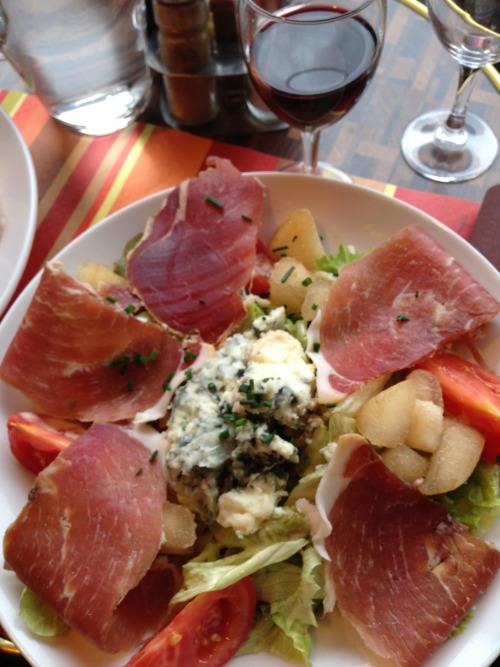How Not To Get Sick When You're Eating On The Road (From A Very Adventurous Foodie!)
Many people, myself included, travel for the love of food.
My culinary adventures include eating yak eyeballs in Tibet, bamboo grubs in Thailand, fried crickets in Myanmar, and Rocky Mountain oysters (cow balls) in Wyoming.
Eating is a huge part of the discovery and pleasure of travel, but if it makes you sick, it can also cause some of your worst memories. Here's how to avoid the potentially detrimental consequences of eating on the road.
1. Drink only boiled or bottled water. Water in developing countries may not be treated and can contain bacteria that could harm your digestion. So the key to staying healthy is to drink bottled water, or boiled water, because boiling it essentially cooks the bacteria out. Pro tip: If the screw top of the bottle served to you is already open, ask for another. Restaurants sometimes refill bottles from the tap.
Related: Related: Best Meat in Hong Kong
2. Size up your stall. Many seasoned travelers say they wouldn't pass up the mouthwatering local specialties available at food stalls at very reasonable prices. Others, however, won't even touch street food, for fear of getting sick. As for me, I take it case by case. I size up the cleanliness of the food stall, the clientele, the vendor, the freshness of the food offered, and how it's cooked. If there are flies swarming around the stall, it's best to shy away. If it looks OK but you're still doubtful, always go for hot food rather than cold food. The fact that it's been cooked means that there is a bigger chance the bacteria will have been boiled away.
3. Get what the locals order. When I eat at a hole-in-the-wall place where English is neither written nor spoken, I let my fellow diners do the deciding for me. Chances are, the locals know what's good and what's questionable, so follow their lead, and order what they're having. And if all else fails, befriend your waiter. I've gestured and cajoled my waiter into letting me into the kitchen to point at this and that, and really see how dishes are made. I ham it up! The staff loves it, and I usually end up with a great meal, plus new friends for the feast.
Related: Down Under: Sydney's Best Restaurants
4. Avoid unpeeled fruit. In developing countries, the rule of thumb is: peel it, or forget it. Avoid buying fruit from the lady on the corner in Bangkok selling slices of fresh pineapple, mango and papaya. You don't know how clean her knife is, or when she last washed her hands before going in. Stick to bananas and oranges and other other fruits that you can peel yourself. That way, you know that the skin has been protecting the goods inside.
5. Examine your eats. It's tempting to dig right in and go for it, because the food looks and smells so delicious and interesting. But take a minute and scope your plate before you indulge. True stories: I found a floating fly in my soup in New York, mosquitoes in my beer in India, and raw meat in my curry in Bali. Yikes.
6. Be sure your meat and fish are cooked. In developing countries, eating raw or undercooked meat can make you sick, because there's a higher chance that it will be filled with bacteria. Raw shellfish can be particularly dangerous to people who have liver disease or compromised immune systems.
If this sounds, well, unappetizing to you, there's always Napa. And Paris. And Italy. And in places like Europe, all the rules are different.




